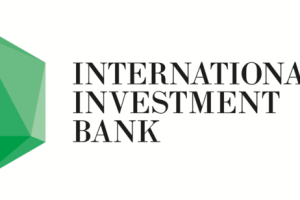Alătură-te comunității noastre!
Vezi cele mai recente știri & informații din piața de capital

According to current forecasts by the International Monetary Fund (IMF), the global economy should be able to handle the consequences of the corona pandemic somewhat better than has been feared.
In its eagerly awaited global economic outlook for this year, the IMF now expects global economic output to decline by only 4.4 per cent. The IMF has thus adjusted its last forecast from June by 0.5 percentage points. However, the global economy is still facing the biggest recession since the great depression of nearly a century ago.
The IMF has lowered its growth forecasts for 2021 by 0.2 percentage points to 5.2 per cent growth due to the continuing consequences of the corona crisis. According to the IMF, the global economy’s recovery is not certain as long as the pandemic continues to spread, preventing a return to normal everyday life.
According to the IMF forecasts, the leading industrial nations in particular are likely to get off somewhat more lightly than expected this year. “We expect a somewhat less severe, but still deep recession,” said IMF Chief Economist Gita Gopinath.
However, the massive economic stimulus packages and monetary policy measures have probably prevented the worst from happening in the major economies.
According to the IMF, economic output in the euro zone is thus expected to shrink by 8.3 per cent this year, with growth of 5.2 per cent expected for 2021. For Austria, the Monetary Fund forecasts a drop in gross domestic product (GDP) of 6.7 per cent for 2020, while 2021 will see growth to the tune of 4.6 per cent again. For Germany, a decline of 6.0 per cent is expected for this year, with growth of 4.2 per cent in 2021.
Other countries that were more severely affected by the pandemic must, however, expect more severe slumps. For example, the IMF is expecting a GDP decline of 9.8 per cent for France and the UK this year, while the Italian economy is forecast to shrink by as much as 10.6 per cent.
China’s economy could grow again this year
The IMF is more optimistic for the USA, where the economy is expected to shrink by 4.3 per cent in 2020. In June, the IMF was still expecting a reduction of 8.0 per cent. According to the IMF’s forecasts, the US economy could grow again by 3.1 per cent in 2021, but recovery in China could be even quicker. World’s second-largest economy could grow by 1.9 per cent this year and by as much as 8.2 per cent in 2021.
The IMF sees the situation in the emerging countries as more problematic. The gap between rich and poor countries could widen further with the crisis: in poorer countries, the economic consequences of the crisis are more severe and long-term. The pandemic could thus wipe out all the progress made fighting poverty since the 1990s. However, all countries should equally benefit from particularly the progress made in the health systems, the IMF demanded in the presentation of its economic outlook.
National debt at record level after aid programs
The aid programs of many countries may also have helped companies and private individuals, but at the same time they may have had massive consequences for national finances. For example, new debt worldwide has increased by an average of nine per cent of GDP. Global national debt is expected to rise to almost 100 per cent of annual global economic output – a record high.
Nevertheless, the IMF is calling for further fiscal support to combat poverty, underemployment and inequality in the wake of the crisis. According to the IWD, public investments in particular are suitable to boost investment activity again. If the industrialized and emerging countries invest one per cent of their economic output, this could increase GDP by 2.7 per cent, calculates IMF Director Vitor Gaspar.
But it is not only countries that have slid heavily into debt as a result of the crisis, many private companies are also in the red. For the most part, the IMF expects major problems for companies outside the banking sector. The IMF therefore sees a growing risk for a wave of bankruptcies as the crisis continues.
Small and medium-sized companies are particularly affected, as they have harder access to the capital market than large companies and are predominantly dependent on bank lending. But while the IMF assesses the banking sector as basically stable, any problems that households and companies encounter in repaying their loans could also affect the banks.
Overall, the IMF expects a recovery, but it is slow and susceptible to setbacks. There could be negative surprises, especially if the number of infections rises sharply again, setbacks in vaccine development and waves of bankruptcies. According to IMF Director Kristalina Georgieva, the international community is now called upon to strengthen health systems everywhere and find a way to deal with the debts of poorer countries.
With the courtesy of Erste Asset Management as copyright owner. The article first appeared here.









Vezi cele mai recente știri & informații din piața de capital